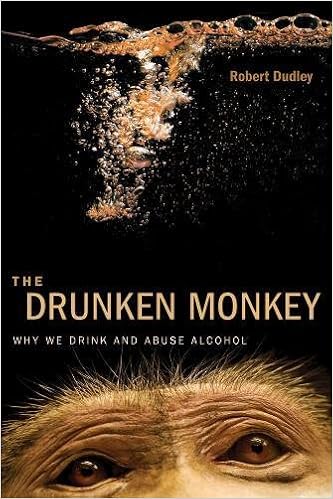
Biologist Robert Dudley formulated the drunken monkey hypothesis in 2000:
According to the hypothesis, our pre-human ancestors regularly ingested small amounts of alcohol because the substance is produced when ripe fruit or nectar is decomposed by wild yeast. Through natural fermentation, yeast feeds on plant sugars and produces waste products of CO2 and ethanol — the chemical name for alcohol.
Although this spoils fruit, it presents an opportunity for animals that can digest alcohol. Creatures able to eat fermenting sugars would have an additional source of nutrients. Not only would they consume semi-rotten fruits, passed over by other animals, but alcohol itself has nutritional value: There are nearly twice as many calories in ethanol compared to carbohydrates of the same weight. (While this causes unwanted beer bellies today, extra calories are beneficial in the wild.)
Bridget Alex, “‘Drunken Monkey’ Hypothesis: Was Booze an Advantage For Our Ancestors?” at Discover Magazine
He sees alcoholism and addiction as an “evolutionary hangover.” This message was not approved by Alcoholics Anonymous. But he got a book out of it: The Drunken Monkey: Why We Drink and Abuse Alcohol (2014)”
Just think what people will believe if we call it “evolution.” Will such a belief help or hurt recovery?
All that said, the basic idea isn’t new. See , for example: The case for fat, starch, etc., as the substances that made us human:
Eating fat, not meat, led to bigger human-type brains
Earlier discussion of the fat theory.
Starchy food may have aided human brain development
Do big brains matter to human intelligence?
Human evolution: The war of trivial explanations
and
What great physicists have said about immateriality and consciousness
Follow UD News at Twitter!